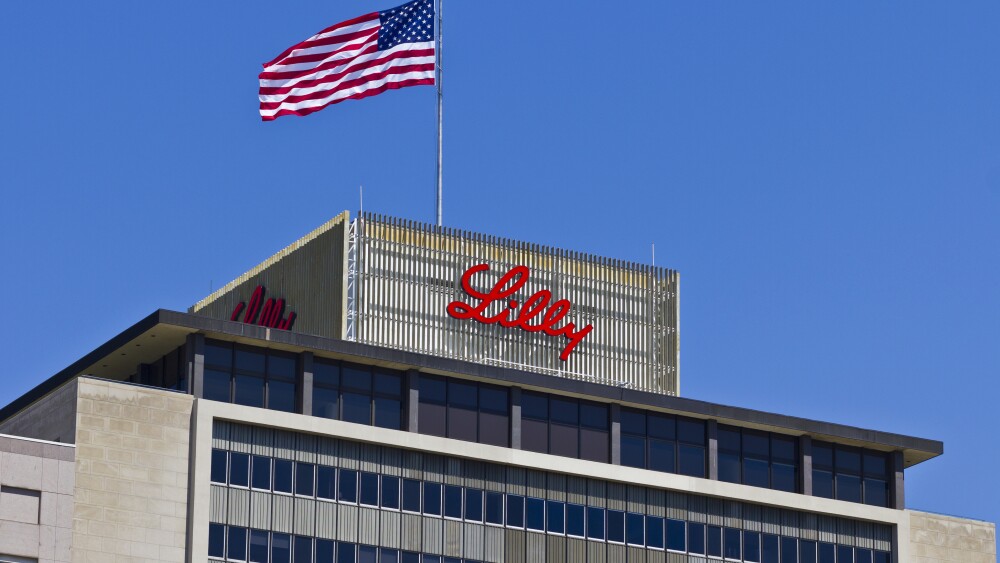DEL MAR Stage 2 Study Meets Primary Endpoint of Vision Non-Inferiority to Anti-VEGF with 12 Week Durability in a Mostly Chronic Anti-VEGF DME Population
SAN JUAN CAPISTRANO, Calif.--(BUSINESS WIRE)--Allegro Ophthalmics, LLC, a biotechnology company focused on the development of novel therapies to treat neovascular retinal diseases, today announced that the DEL MAR Phase 2b Stage 2 clinical trial met its primary endpoint when used as a sequential therapy in patients with diabetic macular edema (DME). The study evaluated Luminate® as a sequential therapy or in combination therapy with anti-VEGF in 80 patients with DME. The 1.0 mg dose of Luminate in sequential therapy demonstrated visual acuity gains equivalent at all time points to bevacizumab monotherapy and again showed 12 week durability after the completion of three loading doses. Results from the DEL MAR Stage 1 trial, in which Luminate met its primary and secondary endpoints as a monotherapy treatment for DME, were released in October 2016.
The primary endpoint of the DEL MAR Phase 2 Stage 2 study was non-inferiority to bevacizumab in mean change in best-corrected visual acuity (BCVA) at 20 weeks when Luminate was used with a single bevacizumab pre-treatment (sequential therapy) or in combination with bevacizumab. The Luminate results were achieved after one treatment of 1.25 mg bevacizumab (week 0) followed by three 1.0 mg Luminate injections (weeks 1, 4, and 8) and 12 weeks off treatment, compared to 5 injections given every 4 weeks with bevacizumab. The data showed the mean gain in BCVA was 7.1 letters for patients in the Luminate with bevacizumab pre-treatment (sequential) group compared to 6.7 letters for patients in the bevacizumab control group.
“Positive results in DEL MAR Stages 1 and 2 continue to confirm Luminate’s safety and efficacy, and its 12-week durability in patients with DME,” said Vicken Karageozian, M.D., President and Chief Medical Officer, Allegro Ophthalmics. “What’s more, about 60 percent of those treated in the DEL MAR trial had been chronic anti-VEGF users, which suggests that Luminate, with its unique mechanism of action, may successfully treat more patients, including those who don’t respond to anti-VEGF.”
“These study results are very promising,” said David S. Boyer, M.D., Clinical Professor of Ophthalmology, USC/Keck School of Medicine; Founder, Retina Vitreous Associates Medical Group; and, member of Allegro’s Scientific Advisory Board. “Not only could Luminate be used as an effective monotherapy with fewer injections, but the latest data suggests that this drug, with its unique mechanism of action, when used as a sequential therapy with an anti-VEGF agent, may provide physicians and DME patients with a new treatment paradigm for DME. Used this way, Luminate with an anti-VEGF pre-treatment could be used to clear VEGF, decrease VEGF production, and cut inflammation at the same time. This should be particularly useful for half of the current patient population that doesn’t respond adequately to repeated anti-VEGF treatments alone.”
The double masked, placebo-controlled, randomized, multi-center, 5-month Phase 2b, Stage 2 trial included 5 arms:
- Luminate 0.5 mg or 1.0 mg as a sequential therapy after a single treatment of 1.25 mg bevacizumab (week 0) followed by three Luminate injections (weeks 1, 4, and 8), and 12 weeks off treatment
- Luminate 0.5 mg or 1.0 mg given in direct combination with bevacizumab 1.25 mg at weeks 1, 4, and 8, and 12 weeks off treatment
- A 1.25 mg bevacizumab control arm of 5 monthly injections
The trial also found that Luminate was well-tolerated with no drug toxicity or intraocular inflammation. These safety results are consistent with previously conducted Luminate studies on human subjects where there were no reports of significant inflammation, and no evidence of retinal tears or detachments. The study was conducted at 14 U.S. sites.
About Luminate
Luminate, a first-in-class integrin peptide therapy, treats neovascular retinal diseases by targeting integrin receptors involved in cell signaling and regulation and in the construction of new and aberrant blood vessels. It is the first class of drug for retinal angiogenesis that shuts off the source of production of growth factors, directly interferes with vessel construction and has specific anti-inflammatory properties. Luminate has been shown in clinical studies to effectively maintain and improve vision by regressing and inhibiting new blood vessel formation, as well as reducing vascular leakage. Currently in Phase 2 clinical trials for multiple indications, Luminate is an investigational drug not approved by the FDA for commercial sale in the U.S. Allegro maintains commercial rights to Luminate in all territories outside of Japan, Korea and China.
About Allegro Ophthalmics, LLC
Allegro Ophthalmics, LLC is establishing integrin peptide therapy as the next-generation pharmaceutical category for the treatment of neovascular retinal diseases. Allegro’s lead investigational drug, Luminate, has successfully met the endpoints for its first three Phase 2 studies and has demonstrated the ability to significantly reduce the current burden of intravitreal injections and treat non-responsive patients with diabetic macular edema and age-related macular degeneration. By quickly, safely and cost-effectively bringing to market new and improved treatment options for leading causes of blindness, Allegro is committed to offering patients an improved quality of life sustained by self-sufficient, functional vision. For more information, visit www.allegroeye.com.
Luminate® is a registered trademark of Allegro Ophthalmics, LLC.
Gray Communications, LLC
Michele Gray, 917-449-9250
michele_gray@me.com




